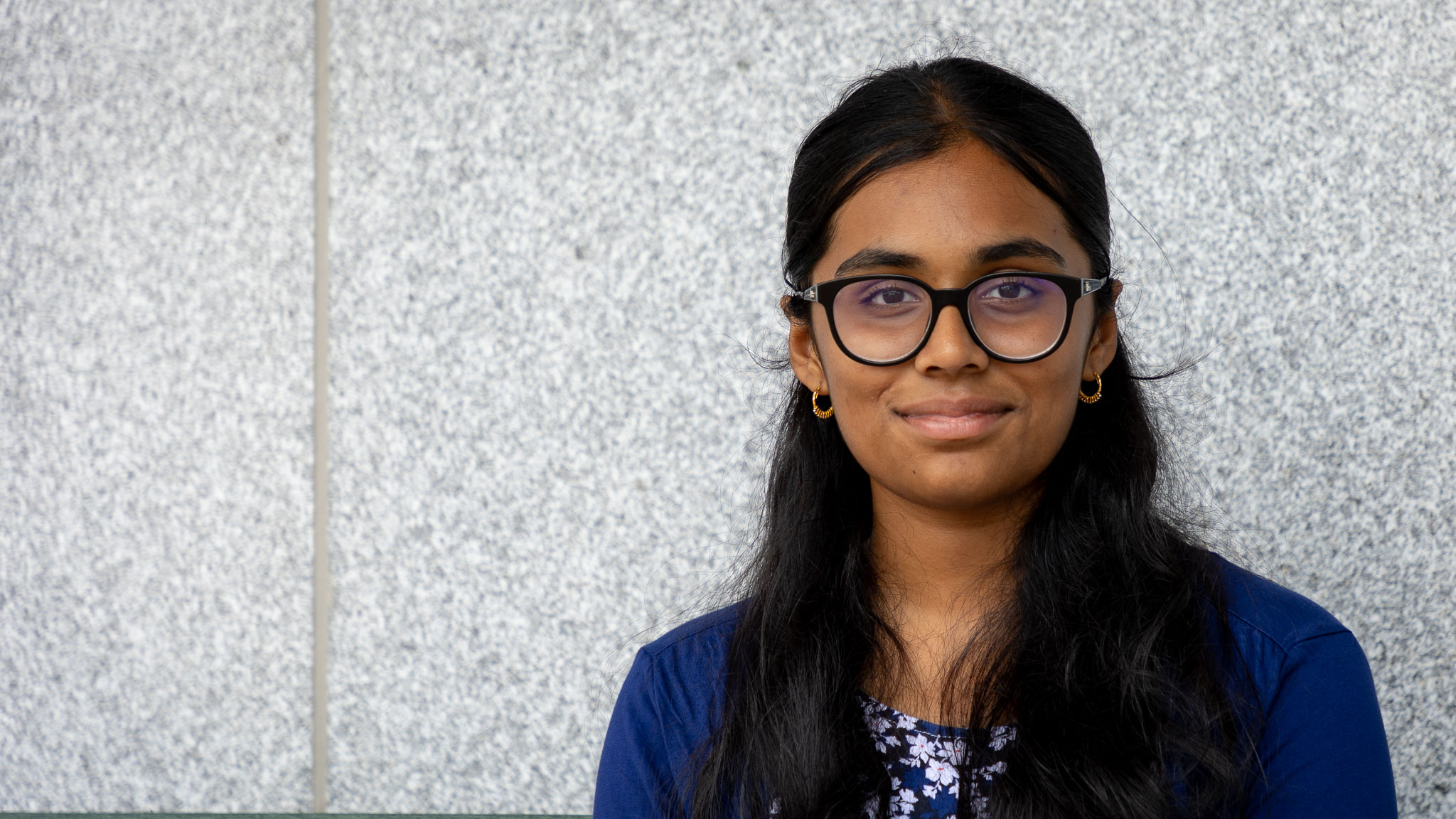
Scarborough High School student explores biomedical engineering at UMaine
The MERITS internship program, run by the Maine Space Grant Consortium, connects Maine high school students to research experiences in the state. Vaishnavi Kuppala is one of these students, a rising senior from Scarborough High School who participated in a six week internship program at the University of Maine under Karissa Tilbury, an associate professor of chemical and biomedical engineering.
Kuppala joined the Tilbury Lab in researching collagen fibers. Collagen fibers naturally have an irregular flow throughout the tissue to aid the strength and resilience of the tissue in multiple directions, but in some cancers collagen fibers can be reordered into a singular flow creating a more rigid structure. Tilbury and other researchers at the UMaine have been working to see if they can create those regular flows of collagen fibers themselves.
Other researchers Kuppala worked with included Jordan Miner, a Ph.D. candidate in the Tilbury and CompuMaine labs and undergraduate researcher Ella Satterthwaite, who is part of the NSF SENSOR research experiences for undergraduates at UMaine. Collagen fibers were manipulated through mechanisms including gravity, shear flow, and centrifuge tests, the results were analyzed with techniques including polar microscopy. Kuppala also had the opportunity to work on other small projects such as distilling ethanol from cattails with Satterthwaite and Stephen Abedessa the lab manager of the UMaine Crosby Lab.
Kuppala heard about the MERITS program in her freshman and sophomore years, and it stood out to her as an exciting opportunity. “It seemed like a very good opportunity to get my foot in the door,” Kuppala said, “There aren’t a lot of opportunities for high schoolers to do this kind of research.” The MERITS program presented her with the opportunity to have an immersive experience in diverse fields.
MERITS internships are open to a large number of STEM fields. Kuppala was initially considering something science related in the medical field, such as neuroscience, but during the interview realized she wanted to broaden the experience to include engineering as well. Biomedical engineering was an opportunity to see a different angle on the medical fields she was already interested in.
One of the most rewarding aspects of these more immersive experiences is how much learning they can provide to participants. Kuppala explained the process of getting up to speed on the research, ”One of the biggest things for me was asking questions.” During the first couple of weeks of her internship she was constantly asking questions about the work the lab was and reading publications relating to the labs’ work. This led to new questions throughout the internship where Kuppala was able to learn about the different facets of the biomedical field.
Kuppala is approaching her senior year of high school, so college is not far from her mind. Her experiences with the MERITS program have turned biomedical engineering into a field she is strongly considering.
